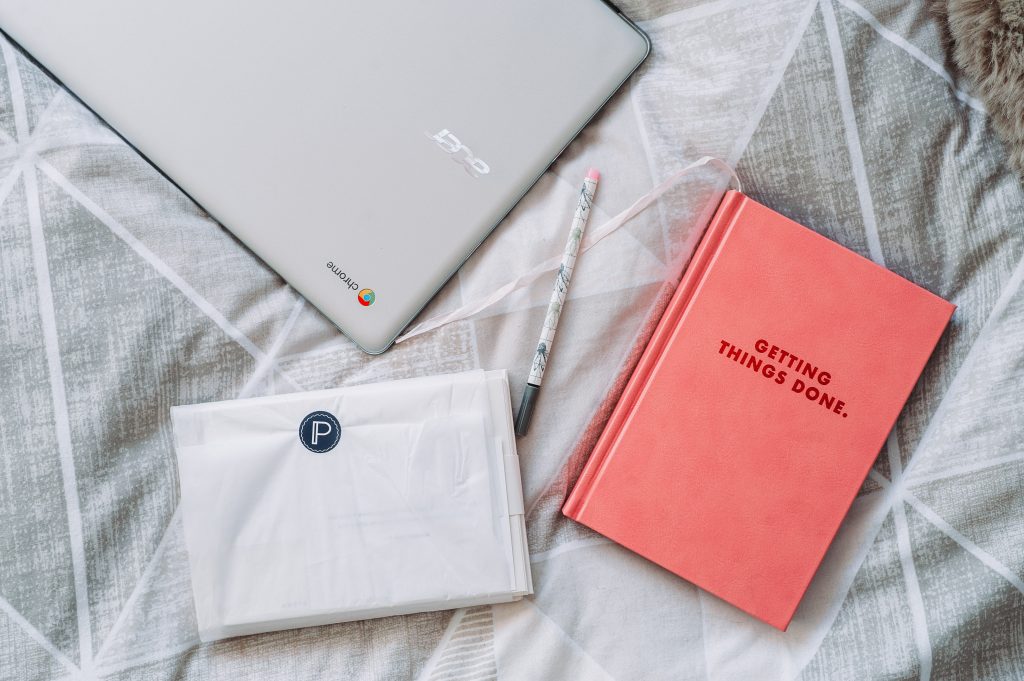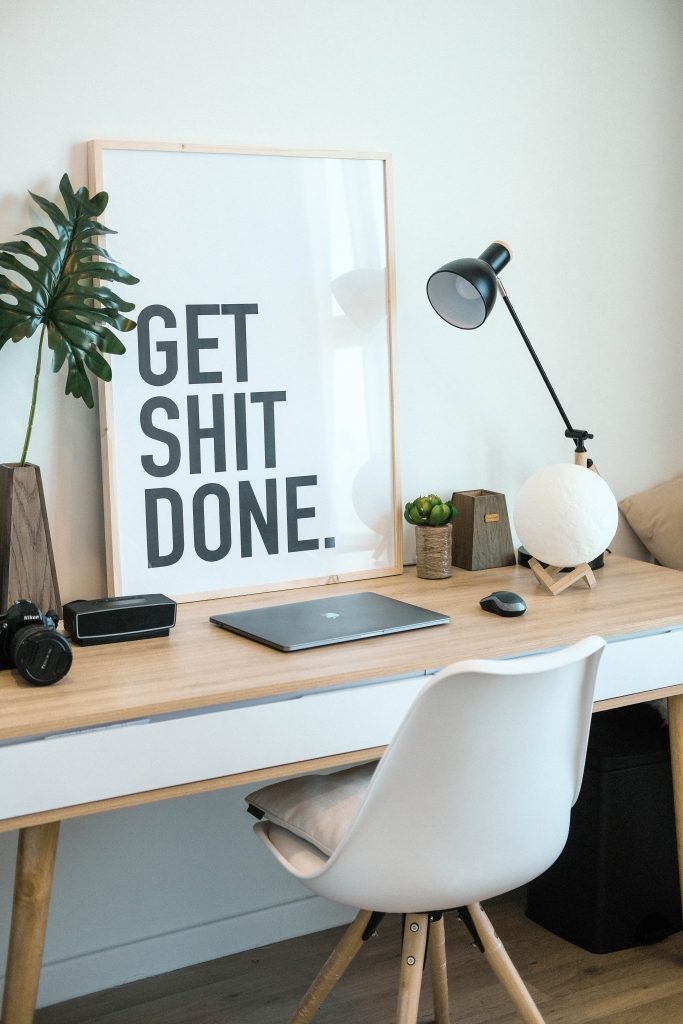Productivity is essentially a measure of efficiency. How quickly we are able to do something. I would caveat this with the following. How quickly we do something without negatively impacting the quality of our work. Because I’ve been noticing this a lot lately. I’m taking increasingly more things on. Adding to my to-do list. And whilst by some miracle it’s all getting done. I’m wondering how much I’m actually achieving. Whilst I may appear productive from the outside. Is the quality of my work beginning to suffer?
The aim of being more productive differs according to who you speak to. But for me it’s all about being able to do the necessary things. With time to spare for the fun stuff. Essentially finding a balance between the need to’s and the want to’s. For others, productivity may simply be the way they can ensure that everything gets done. Or how they can do the most whilst expending the least time or energy. No matter what you’re reasons. Productivity can help us by ensuring we make decisions or choices quicker. And that we have organisational systems in place which help streamline daily processes.
How to Increase Productivity
There seems to be a lot of available information on how to increase productivity. This makes sense. Most of us would like to do this. Ideally in the easiest way possible. Whilst it’s not necessarily an easy journey to greater productivity. The effort that we put in at the start will reap the rewards in the end. Yes, as we take steps towards being more efficient we may feel busier than ever. That we need to make changes; which isn’t always easy. But this is short-term effort for long-term reward. Ultimately, when we have these productivity processes in place. We’ll save time on a daily basis that will far exceed the initial time we spent.
If there’s so much information out there, why should you read my tips? I’ve sifted through the information to find the ones which I think are most relatable. And then have tried to give concrete examples for our daily lives. Let me know what you think!
#1 80/20 or Pareto Rule

This rule suggests that 80% of the consequences stem from only 20% of causes. But what does this mean for our productivity? We can, and do, extrapolate this to mean that 80% of the work we do originates from the first 20% of our time and effort. Over time, the amount we achieve continues to deteriorate. We can use this to understand that we are all productive at peak times. Not only times of the day or before/after breaks. But even within those time periods when we sit down to work. Or we’re doing the chores. We can maximize our productivity by focusing our energy on our main priorities during those times we are most effective. And when we feel our efficiency begin to wane. Recognize this as a sign for a much needed break. This is a key example of working smarter, not harder.
#2 Stop Multitasking
This one may sound odd. Most of of us fall into the trap that doing multiple things at once means more things get done. All very logical so far. But when we are switching our attention from one task to another we’re not optimizing our brain power. We’re actually expending more energy and exhausting ourselves. Put simply, things don’t get done as fast. But they also don’t get done as well.
#3 Learn to Prioritize
I confess this is not my strong point. But this is perhaps one of the biggest drains on my energy. So much of my to-do list falls into the seemingly ‘critical’ or ‘priority’ category. And yet, in all honesty, most of them are not. A good example of this is cleaning the house. I attempted to clean the house top to bottom every week. And finding the time to do it all can be a huge source of stress. But is it genuinely a priority? What is the worst that will happen if every surface isn’t dusted (despite the fact I’m sure I miss a few each time!)?. In reality, nothing. It can wait a week. A large proportion of what we label priorities can usually wait, be done by someone else, or not be done at all. Next time you’re thinking about your to-do list. Ask yourself. What really needs to be done and done by me? It may be helpful to create a traffic light list system. Red items marked as priority, orange as less urgent and green if you have the time. Feels a bit better doesn’t it?
#4 Do What You Need to Get Going

Do you have days where you struggle to feel productive? Where the to-do list looms larger than life? Some days just thinking about everything I have to do stops me doing anything at all. If you can relate, thing about the tips in the point above. Can you streamline your to-do list to take the pressure off? This may be all you need to get going. When my list is more manageable; it’s easier to find the energy to start. Another great way to get started is to focus on the small stuff. Give yourself 5 -10 minutes, set a timer if needed. And do as many quick and easy things as possible. Usually you’ll find once you’ve started you may as well continue. And you’re able to tick a bunch of your to-do’s off all in one go. I like to do this when I’ve got a natural pause in my day. For example, whilst I’m waiting for the bath to run or shower to warm up. I’ll do a quick tidy up around the house. Or when I’m waiting for my toast to pop or kettle to boil I’ll wipe down my surfaces and do some washing up.
#5 Find Time to Pause
When we have a break it may feel like we’re not being efficient. That we are wasting time. Breaks can feel like the enemy or the opposite of productivity. But we know this to be untrue. Whilst it doesn’t seem rational that less time working would mean more achievements. When we get the balance right, it can. When we take breaks our body and mind recharges. Think about the 80/20 rule. None of us can sustain the energy necessary to work at maximum capacity full time. So, the longer we work, expending effort and using time, the worse the quality of our work becomes over time. This is where a break comes in. It gives us a reset so we can return to our workload ready to give our 100%. You can use this time to get some air, hydrate, eat or exercise. Or anything else you need that day. Having a break not only recharges us but gives us time for ourselves too. A sure fire way to make paid or unpaid work more attractive when it’s not work, work, work all the time.
One Last Productivity Tip…
The Pomodoro Technique can help bring many of these ideas together. It takes the 80/20 rule into consideration. Ensuring we maximize the time times we’re most productive. It focuses our attention on one item. So we’re not splitting our attention and over expending our energy by multi-tasking. And it understands the value of having a break. To use the Pomodoro Technique set a timer for 25 minutes and focus your attention on one item. Followed by a 5 minute break. Repeat this 4 times and then have a 15-30 minute break.
What are your thoughts on productivity? Do you have tips and tricks that help you? Let us know below.


I love the ideas! Just starting and writing down whatever can be so useful – you can always edit later. x
Thanks Caroline. I sometimes find it’s the best way to get your foot in the door. Often once I’ve started I can’t stop til it’s done!
I loved this post! Super helpful and a lovely read.💜
Thank you! I hope it helps